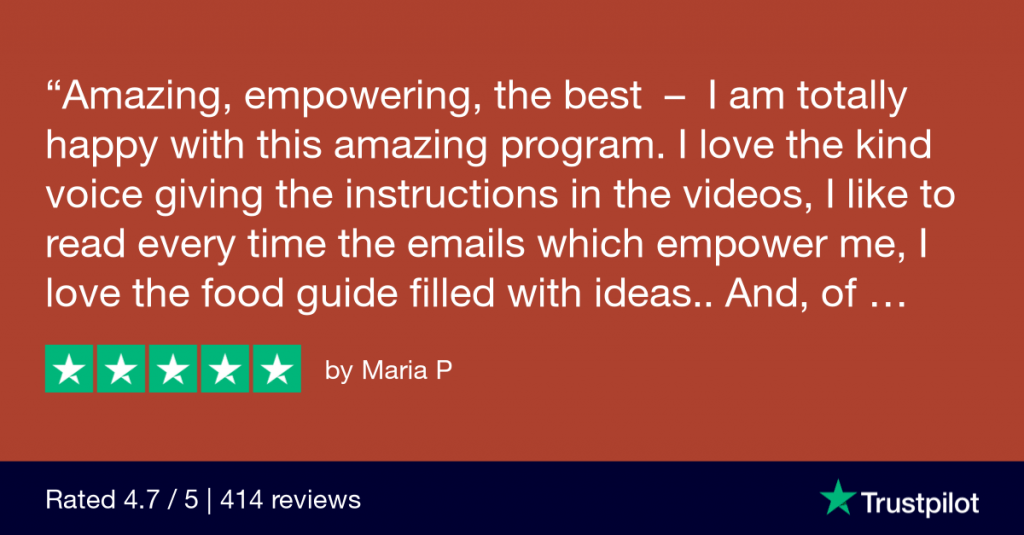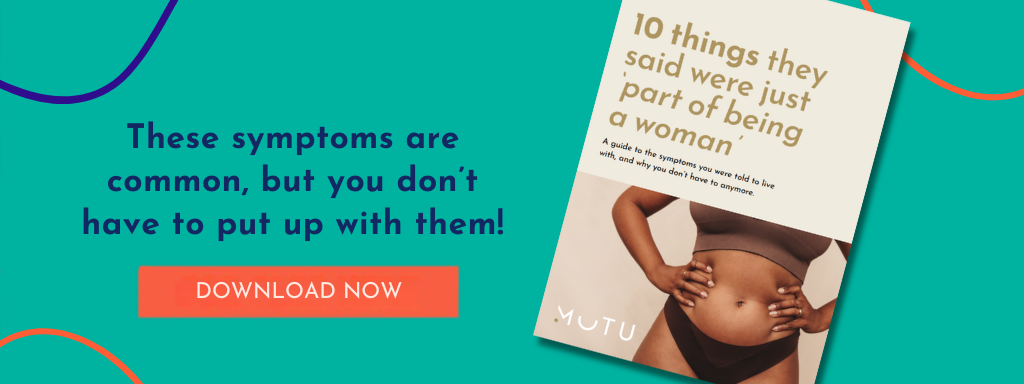The internet is telling you to look on the bright side. But is mindset the only thing making postpartum feel so hard?
Can there ever be such a thing as too much positivity? ‘Toxic positivity’? Would we all really be better by trying to be happier all the time?
Positive thinking vs. toxic positivity
Though positive thinking can have many benefits in our lives, there is such a thing as “toxic positivity” and it’s increasingly common in our digitized world. It’s a message of only seeing the good in everything, ignoring challenging feelings (always labeled as “negative”), being shunned for having challenging thoughts that might disrupt someone’s “high frequencies,” or feeling like you need to move past your own complicated emotions to not bring others down.

Toxic positivity is gaining ground, but it’s far from new. Cults use its lure to charm members with promises of riches and spiritual protection. Corporations use its easy slogans to push for productivity by all means. We see it printed on t-shirts emblazoned with “good vibes only” trending in an age filled with massive political unrest and growing uncertainty.
It may seem odd to even assume a positive attitude could be toxic — “What’s wrong with being happy?” you might be asking. Being happy and positive is great, but where it gets to be toxic is when positivity, happiness, or gratitude are seen as the only valid feelings or when a call to just think positive thoughts is used to push away more difficult emotions.
Postpartum depression and social media messaging
As rates of postpartum depression rise, the wave of “no bad days” messaging in mommy culture is something worth confronting head on.
For a new parent, that may look like being told:
“Just be grateful you have a healthy baby.”
“Some mothers have it so much worse.”
“They grow up so fast so enjoy every minute.”
These common and usually dismissive phrases can feel belittling to someone experiencing trauma or anyone just hoping to have some connection and support as a new parent.

At its core, toxic positivity is denialism and it can come from within or pressures from others. Resisting toxic positivity in postpartum and beyond is not about glorifying negativity, but about recognizing that positivity is just one emotion in a mix of many. It isn’t even always the most appropriate or helpful one of the bunch.
When you are struggling with sleepless nights, breastfeeding issues, a surgical scar across your abdomen, emotional pain from a difficult birth, or feeling mixed emotions about your changing body, having someone counter your concerns with a “look on the bright side” response is probably not going to make you feel better or fix anything.
It could actually make you feel worse.
Vulnerability and shame
Not to mention, one of the hallmarks of love is that it’s often based around the ability to be vulnerable and being relentlessly positive sometimes masks vulnerability. Nowhere is this more true than in the parent-infant relationship where tending to the needs of a vulnerable infant is part of the built-in bonding process. We’re prone to label babies as “happy” or “good,” implying then that there are “bad” babies who cry or don’t sleep enough or eat easily. This is an unrealistic and unfair labeling that puts shame on parents for normal biological things they rarely have much control over.
Toxic positivity in the form of the Positive Mental Attitude Movement (PMA) or “good vibes only” type will have you believing our brains are magnets. ‘You can control your baby’s sleep through manifesting!’ ‘Your postpartum depression comes from lack of gratitude!’ Beyond this being scientifically unsound (we at MUTU stan science), it’s also a theory of the world which opens up a lot of room for shame.
Some of the most obvious issues with this rationale is that it can make the circumstances brought on by systemic racism, economic issues, internalized phobias, birth trauma, mental health disorders, and just smaller plain old regular annoying circumstances seem like they’re just a Law of Attraction meditation session away from being solved. Or worse, that those experiencing these difficult circumstances are simply not positively thinking them away hard enough.

If your social media algorithm has caught you scrolling through any posts with advice on being more positive, it’s likely you’ve come across some positive vibes grifters promising the powers of tummy slimming green juice, manifest your perfect birth courses, baby butt creams charged with higher vibrations, etc. here to turn your life around despite your circumstances.
As gaps in maternal and infant care move increasingly onto the web, so do the trappings of non-experts, spiritual influencers, and “momfluencers” soft pedaling products promising posi vibes to new mums.
Toxic positivity and the pandemic
Some psychologists and researchers have pointed out that toxic positivity gained a stronger foothold on the internet during the pandemic, as influencers and friends turned to platitudes about “getting through this” in an effort to avoid confronting the fear and anxiety of a chaotic world with so many unknowns. The postpartum period is already a time of so much change and often confusion/anxiety, even more so when the pandemic forced increased isolation. There was a spike in birth trauma and postpartum depression through the pandemic and access to care was limited, clearing the way for messages full of scams and shame to take root in mothering communities online.
Who to follow instead!
Fortunately, there are educators, professionals, and influencers taking a stand against this wave of emotional gaslighting online. Psychologists like Whitney Goodman who wrote the book “Toxic Positivity” and who’s Instagram @sitwithwhit is incredibly popular and postpartum psychotherapist Robyn Alagona (@the_postpartum_therapist) take on the “no bad days” tropes of pregnancy and postpartum head on. If you want a healthy dose of “keeping it real” with some historical context, psychotherapist Azadeh Ghafari (@the.wellness.therapist) calls out toxic positivity in its many forms, starting from its roots in masking historical conflict and colonialism. These can be helpful resources when toxic positivity has you feeling stranded on an island of shame for not feeling flooded with gratitude for just surviving birth.
The point of turning away from positivity when it gets toxic is that there is something to be gained by being a bit more “in the moment” during a period of your life so full of fluctuations. Thinking less about comparisons, less about the binary of good and bad, less about what others might think, less about pathologizing normal emotions and more on just being aware that you are in a time which requires a lot of you can go a long way.

MUTU tips for dealing with toxic positivity in motherhood
- Try and not shame yourself for feeling the things you are feeling. The postnatal period is difficult and feelings of difficulty here are valid, not negative.
- Surround yourself with people you feel safe being “real” with. That can be easier said than done, so it might require joining a support group or online community.
- On that note, however, it might be a good idea to minimize your exposure to online parenting content if it’s triggering feelings of shame or inadequacy.
- If you feel comfortable addressing toxic positivity with your loved ones, try asking them to be mindful of the phrases they use which feel dismissive. They usually have good intentions in saying these things and aren’t mindful of their hurtful impact.
- If you are struggling to get out your real emotions with friends & family, you could keep a journal. Allow yourself to write out every feeling, not just the ones you feel you are “allowed” to share.
The MUTU community is dedicated to being a place to share difficult emotions along with successes and gratitude. In that respect, when you join MUTU, you are joining more than a fitness app, you’re entering a community who “gets it,” who knows that feeling good isn’t always about just feeling positive. Join us!












